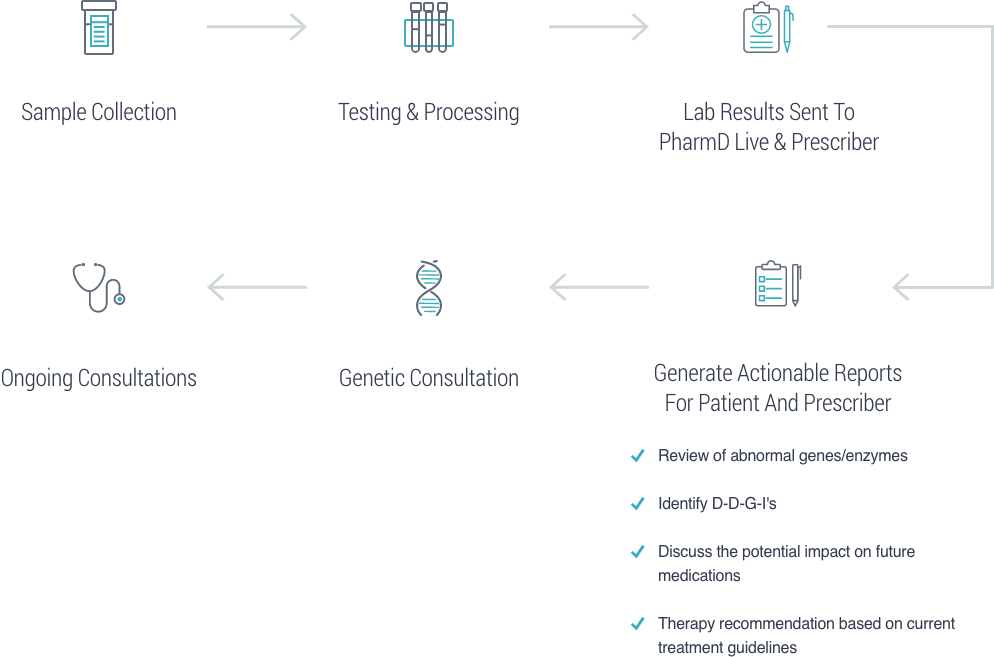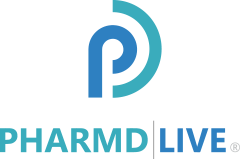Pharmacogenomics
The intersection of genomic insight, pharmacologic expertise, and personalized medicine
The right drug, the first time.
It is a given in medicine that individuals vary in their responses to drug therapy. The unique differences in genetic makeup among individuals play an important role in the pharmacokinetic and pharmacodynamic variabilities in drug response.
As a core element of precision medicine, pharmacogenomics (PGX), has the potential to identify drug therapy responders and non-responders and subsequently guide the creation of individualized treatment plan and dose optimization with the goal of maximizing the effectiveness of medications and minimizing toxicities in individual patients.
Currently, over 350 medications contain pharmacogenomic information in their Food & Drug Administration (FDA) approved labels and package inserts.
It is estimated that at least 1 in 4 primary care patients are prescribed at least one medication with pharmacogenomic implications
Drugs are therapeutically effective in 20-60% of patients, and ~40-75% of patients show no response to initial treatments
According to the FDA, lack of efficacy is common, and serious adverse drug reactions (ADRs) remain a leading cause of morbidity and mortality
PharmD Live®: Your PGX Partner
Our board-certified clinical pharmacists deploy evidence-based PGX information in our pre and post test consultations to physicians and patients. We analyze and distill complex PGX information and create personalized, comprehensive, easy-to-read and actionable reports for prescribers to guide the selection of the therapeutic and cost-effective treatments for patients. We also engage and empower your patients to achieve the best possible outcomes.
The test is only a small piece of the puzzle.
A larger and more critical piece is the analysis and clinical application to achieve the desired outcomes.
PharmD Live Pharmacogenomics Process

Having the patient’s genetic information before prescribing is crucial to the identification and prevention of drug-gene interactions (DGIs), or complex drug-drug-gene interactions (DDGIs) that can occur as a result of the superimposition of drug-drug interactions (DDIs) on drug-gene interactions (DGIs). This is especially the case in high-risk, medically-complex patients on multiple concomitant medications. This process ultimately guides the prospective selection of appropriate and personalized drug therapy for patients.
Benefits of Pharmacogenomics
- Optimize drug effectiveness
- Mitigate medication-related risks.
- Improve medication adherence
The right drug, the first time.
Adverse Drug Reactions
Neurological or Psychiatric Disorder
Chronic pain
Medication with Pharmacogenomics Implications
Taking Multiple Medications
Therapeutic Failure
